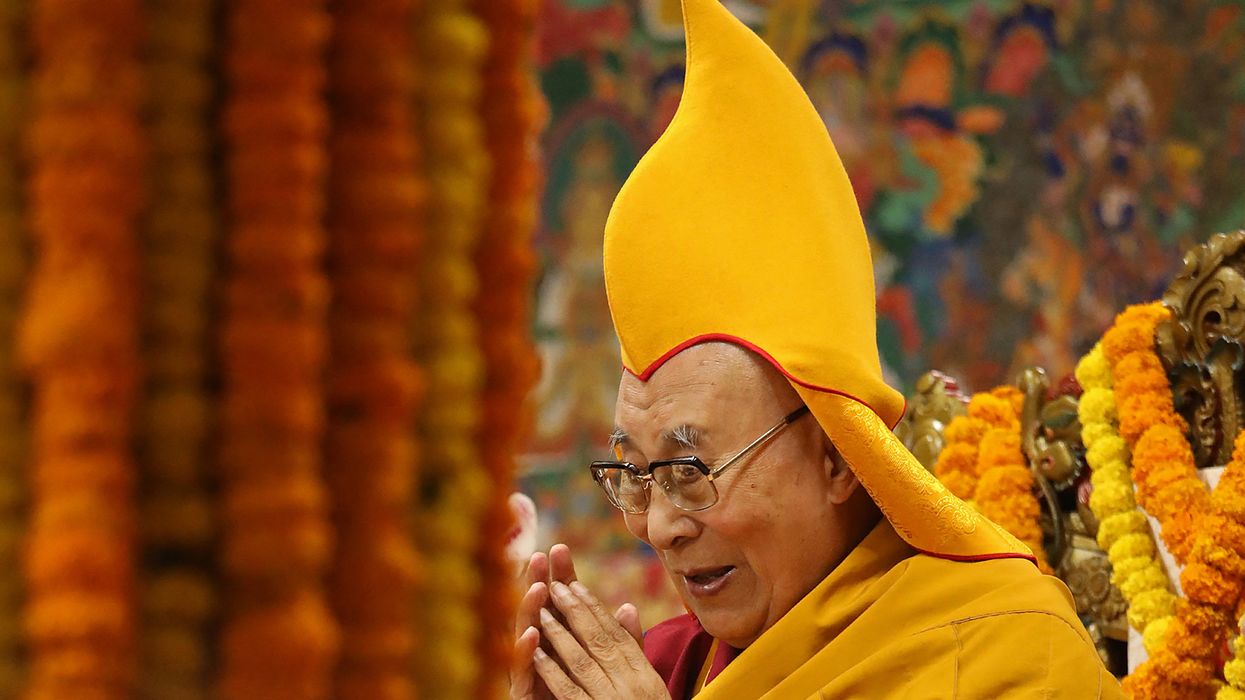THE DALAI LAMA has said that the 600-year-old Tibetan spiritual institution will continue after his death, and that his office will have the sole responsibility of naming his successor. The announcement came on Wednesday through a video message at the start of a religious leaders’ meeting in the Indian Himalayan town where he has lived for decades.
"In accordance with all these requests, I am affirming that the institution of the Dalai Lama will continue," he said, according to an official translation. The Dalai Lama also said he had received multiple appeals over the past 14 years from Tibetans in exile, Buddhists across the Himalayan region, Mongolia, and parts of Russia and China urging him to ensure the continuation of the institution.
“In particular, I have received messages through various channels from Tibetans in Tibet making the same appeal,” he added.
The announcement comes ahead of his 90th birthday on July 6.
Tenzin Gyatso is considered the 14th reincarnation of the Dalai Lama. He and thousands of Tibetans have lived in exile in India since 1959, when Chinese troops suppressed an uprising in Lhasa. The Dalai Lama had earlier said the institution would only continue if there was popular demand.
'Successor will not be chosen by China'
While China maintains that it will approve the reincarnation of the next Dalai Lama, the Tibetan spiritual leader said the decision will rest solely with the India-based Gaden Phodrang Trust — his official office.
"The responsibility for identifying the 15th Dalai Lama will rest exclusively with the Gaden Phodrang Trust," he said.
Samdhong Rinpoche, a senior Tibetan leader from the Trust, told reporters that the Dalai Lama is in "excellent health" and that there are currently "no further instructions for succession". Rinpoche also said that the next Dalai Lama could belong to "any nationality" and would come from a place with "access to freedom".
China reiterated its position on Wednesday. “The reincarnation of the Dalai Lama must be approved by the central government,” foreign ministry spokesperson Mao Ning told reporters. She added that the selection would be done “by drawing lots from a golden urn”.
That urn is held by Beijing. The Dalai Lama has previously said the process lacks “any spiritual quality” if used dishonestly.
Past concerns and political tensions
In 2011, the Dalai Lama handed over political authority to a democratically elected Tibetan government-in-exile. At the time, he warned that the spiritual post could be at risk of “vested political interests misusing the reincarnation system”.
In 1995, Beijing appointed a Panchen Lama — another key Tibetan religious figure — and detained a six-year-old recognised by the Dalai Lama. Rights groups described the child as the world’s youngest political prisoner.
The announcement of the institution’s continuation was welcomed by many Tibetans. Jigme Taydeh, a civil servant with the Tibetan government-in-exile, said, "Whilst we rejoice at this confirmation of its continuation, we stringently object to China’s interference and plans to install a puppet Dalai Lama. Neither the Tibetans nor the world would recognise such mischief."
(With inputs from agencies)





